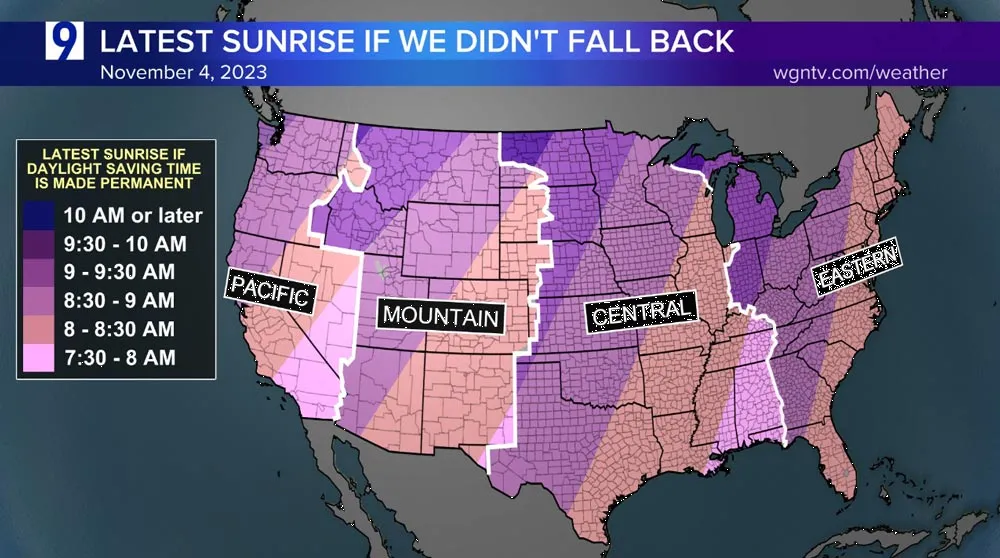Daylight Savings Time (DST)
Sources: Wikipedia and GitHub.
The Sunshine Protection Act is a proposed United States federal law that would make U.S. daylight saving time (DST) permanent, meaning the time would no longer change twice per year. Permanent DST in the U.S., leading to later sunrises and sunsets during the four months in which most of the U.S. currently observes standard time, results in less sunlight in the morning hours and more sunlight in the evening ones.
The bill has been proposed during several sessions of Congress. In 2022, the Senate passed the bill by unanimous consent, although several senators stated later that they would have objected if they had known that the bill could pass. A 2023 bill has been introduced by Senator Marco Rubio (R-FL), but is at a standstill for the time being. No iteration of the bill has passed the House.
Surveys from the American Academy of Sleep Medicine (AASM) have found that about 63% of Americans would prefer to eliminate DST and NOT make it permanent. Researchers say that the change to DST has long-term negative consequences for our bodies and minds. Here are 7 things we've learned about how changing to DST negatively affects our lives.
The map below was prepared by WGN-TV in Chicago showing that if DST were made permanent, sunrise in parts of some northern states would not occur until after 10:00am. Many counties would see sunrise at around 9:30am.

The Emergency Daylight Saving Time Energy Conservation Act enacted year-round daylight saving time for a two-year experiment from January 6, 1974, to April 7, 1975, but Congress later ended the experiment early on October 27, 1974, and did not make it permanent due to unfavorable public opinion, especially regarding concerns about children walking to school and waiting for school buses on dark winter mornings. Sunrise for most of the country came around 8:30 a.m. or later in the dreariest parts of winter, so most people commuted to work and school in the dark. Americans said the sunless mornings made them cranky, sad and less safe.
Here is an article from the Washington Post with an interactive map by county showing how early or late you would be in the dark. Unfortunately, you will need a subscription to the Washington Post to access the map.




